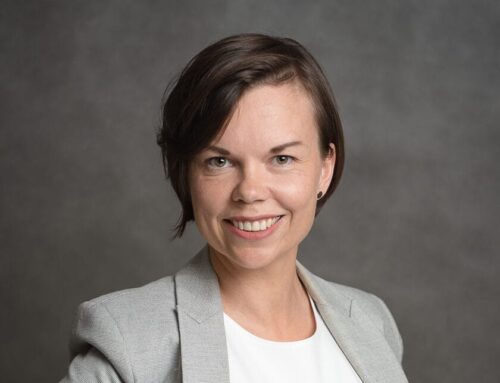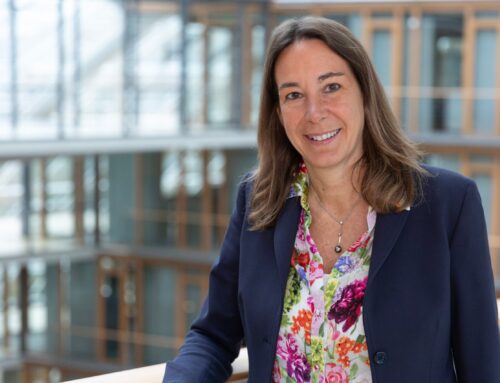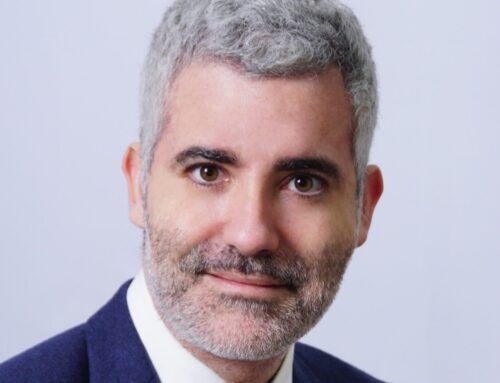
European elections have now been held across EU Member states. Against many odds, they wielded political equilibria overall comparable to the ones from 2019. Participation is only slightly higher. The EPP group came first, harvesting 26,2% of the votes (gaining 23 seats) while the S&D, losing four, is still a feeble second. Notable changes come with the decline of the Greens / EFA alliance, who lose 18 seats, and of the Renew group (-23 MEPs) and, more importantly, with the quite dramatic rises of the ECR and ID groups (+ 4 and 9 seats). These changes will prompt a rightward shift in the Parliament while probably not impeding the likely formation of a renewed, broad S&D-Renew-EPP coalition. We ask Sara Hobolt, Sutherland Chair in European institutions and professor in the Department of Government at the London School of Economics (LSE) to share her analysis of this important democratic consultation and its consequences.
Q1. In your opinion, what are the striking features of the European elections results for the EU as a whole?
Sara Hobolt (SH): For the EU as a whole, the most significant aspect of the results was the shift to the right in the European Parliament. While most of the media’s attention has focused on the successes of the far right, in many ways it was the centre-right European People’s Party (EPP) who emerged as the election’s real winner. Not only has the EPP remained the largest party group in the European Parliament with an increased seat share, the overall shift to the right also means they are the true king makers.
The other election winners are the Eurosceptic conservative European Conservatives and Reformist (ECR) group – where Meloni’s Brothers of Italy and the Polish Law and Justice (PiS) form the largest national parties – as well as the far-right Identity and Democracy (ID) group, dominated by the victorious French National Rally, the Austrian Freedom Party and the Matteo Salvini’s Italian League. Until very recently, the German AfD also belonged to the ID group, but they were expelled for being too extreme. The losers are all on the centre-left, especially the liberal Renew Group, where Macron’s party sits, and the Greens that had a bad election in both France and Germany.
Q2. Did you notice specific outcomes in member states, both with respect to the elections campaigns and the results wielded?
S.H.: European Parliament elections should be seen as 27 electoral contests with specific national dynamics and electoral cycles. We therefore see different dynamics across member states– not least as many voters treat them as ‘mid-term elections’ where they can express their dissatisfaction with the national incumbents.
In my view, the most striking result in an individual member state was probably Marine Le Pen’s far-right National Rally topping the polls in France. With 31% of the vote, the National Rally gained more than double the votes of President Emmanuel Macron’s centrist party and prompted him to call snap legislative elections. This came as a shock to most international observers. Elsewhere, the populist radical right also had successful elections with Italian Prime Minister Giorgia Meloni’s Brothers of Italy taking the largest share of the national vote in Italy (29%), and the far-right Alternative for Germany (AfD) had their best election to date, coming second in Germany with 16% of the vote.
While the populist radical right did well in a number of large member states they didn’t do as well in Scandinavia, for example. Yet, Europe-wide issues such as immigration, climate change action, energy prices, economic woes and military assistance to Ukraine also played a role in the campaigns across member states.
Q3. The three largest groups (EPP, S&D and Renew Europe) should be able to rekindle their coalition. In your opinion, what would be the key features of their platform?
S.H.: The centrist pro-European “grand coalition” of the EPP, S&D and Renew – that has dominated policy-making in the European Parliament in the last Parliament – retains its majority. This means that for most policy areas, we would expect “more of the same” when it comes to the policy direction of the European Parliament, suggesting that the legislative coalition will remain centrist, pro-European, pro-Single Market and pro-Ukraine and pro-green transition. However, given that coalitions form issue-by-issue in the European Parliament, and the shift to the right makes the EPP the pivotal (median) party, this suggests that on some issues we could see an alternative right-wing coalition of the EPP and the far right (ECR and ID).
Research by Simon Hix (EUI, Florence) and Abdul Noury (NYU in Abu ) for the Swedish Institute for European Policy Studies (SIEPS) has shown that policies most likely to be affected by such a right-wing coalition are scaling back on EU’s ambitious environmental policy as well as greater support for restrictive rather than liberal migration policies. Indeed own research with Zachary Dickson indicates that the European Green Deal may face challenges as the populist radical right is mobilising it as a wedge issue by taking an adversarial stance and highlighting the immediate costs of the green transition for consumers, farmers and businesses.
Much depends on whether the EPP decides to side with the far-right parties on issues such as this, and whether the far-right manages to overcome divisions within their own ranks to form stable political groups in the parliament.
Q4. Do you think the election results will have a significant influence on the EU “top jobs” distribution later this year? Who do you see as the main favorites?
S.H.: These European Parliament elections are important for who becomes the next president of the EU’s executive body, the European Commission, as parliamentary approval is required. Again, this looks likely to be a case of continuity rather than rupture, since the current Commission President, Ursula von der Leyen, is also the lead candidate (Spitzenkandidat) of the EPP, which secured the largest seat share. And since the centrist pro-European party groups still hold a majority, and have expressed support for von der Leyen, she looks likely to continue in her post. However, as it is a secret ballot to confirm her presidency, the vote could still be tight. In 2019, von der Leyen won her approval vote by only 9 votes, despite having a much larger grand coalition behind her.
Interview made on June, 17th 2024






